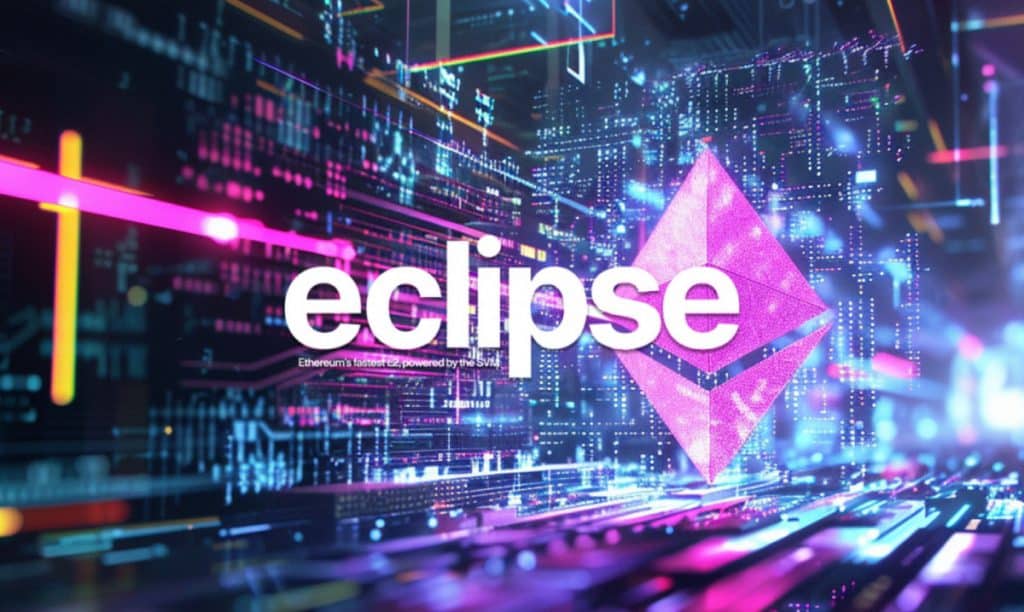Eclipse raises $50 million in funding to accelerate L2 blockchain development ahead of mainnet launch

Posted: March 11, 2024 12:19 PM Updated: March 11, 2024 12:19 PM

Correction and fact check date: March 11, 2024, 12:19 p.m.
briefly
Eclipse is preparing for mainnet launch by raising $50 million in funding to develop an Ethereum L2 scaling solution leveraging the Solana Virtual Machine.

Modular blockchain Eclipse raises 5 in Series A funding round led by Placeholder, Hack VC, Polychain Capital, Delphi Digital, Maven 11, DBA and Fenbushi Capital, with strategic contributions from Flow Traders, GSR, Apollo Global Management and OKX Ventures We raised $10 million. .
The new capital injection brings Eclipse’s total funding to $65 million. The company plans to allocate funds to advance project development and prepare for mainnet launch.
Eclipse is a custom rollup provider that provides compatibility with a variety of layer 1 blockchains. Eclipse’s architecture integrates the Solana Virtual Machine (SVM) for execution, Celestia, a modular data availability network to ensure data availability, and Ethereum for payments and consensus.
“Eclipse integrates high-performance SVMs with Ethereum’s deep liquidity pools while maintaining tight constraints on verifiability,” Neel Somani, founder of Eclipse Labs, said in a written statement.
The company aims to develop a highly composable Ethereum Layer 2 chain. According to Neel Somani, the goal is to provide Ethereum with a single, scalable and composable layer 2 solution that can handle 99% of use cases.
Founded in 2022, the company has already introduced Devnet and Testnet versions of its protocol, enabling a variety of decentralized applications to test its infrastructure, including non-fungible token (NFT) marketplace Rarible, oracle infrastructure Pyth Network, and lending protocol Solend. dApp). . Eclipse plans to launch its mainnet in the second quarter of 2024. After the mainnet launch, we plan to support hackathons, accelerators, and community events for users.
Eclipse’s innovative approach to modularity
Blockchain modularization involves the organization of various design layers within the blockchain stack encompassing execution, settlement, consensus, and data availability. Traditional blockchains, such as Bitcoin, Ethereum, and Solana, typically use the same set of nodes to perform these functions. In contrast, modular blockchains separate these unique features into specialized layers to increase efficiency and flexibility.
“There are numerous theoretical solutions and funding infrastructures to address liquidity fragmentation in the near future. However, our perspective highlights the wealth of opportunities immediately available at the execution layer, which we aim to integrate for an improved user experience on Ethereum. Eclipse is designed to stand out as the most performant Layer 2,” said Neel Somani, Eclipse founder.
With the Dencun upgrade featuring EIP-4844 or proto-danksharding, the company plans to use Celestia for data availability. Eclipse could potentially publish certain data to Ethereum, such as state differences after full danksharding. However, even for zero-knowledge rollups, there are benefits to publishing all transactions to the data availability layer. This strategy ensures transparency, enabling rapid verification so that anyone can detect potential tampering or corruption in a zero-knowledge proof system.
Eclipse’s recent investments and commitment to innovation have positioned it as a significant player in the blockchain space, underscoring its intent to revolutionize the landscape of layer 2 solutions.
disclaimer
In accordance with the Trust Project Guidelines, the information provided on these pages is not intended and should not be construed as legal, tax, investment, financial or any other form of advice. It is important to invest only what you can afford to lose and, when in doubt, seek independent financial advice. We recommend that you refer to the Terms of Use and help and support pages provided by the publisher or advertiser for more information. Although MetaversePost is committed to accurate and unbiased reporting, market conditions may change without notice.
About the author
Alisa is a reporter for Metaverse Post. She focuses on everything related to investing, AI, metaverse, and Web3. Alisa holds a degree in Art Business and her expertise lies in the fields of art and technology. She developed a passion for journalism through her work with VCs, notable cryptocurrency projects, and science writing. You can contact us at (email protected).
more articles

alice davidson

Alisa is a reporter for Metaverse Post. She focuses on everything related to investing, AI, metaverse, and Web3. Alisa holds a degree in Art Business and her expertise lies in the fields of art and technology. She developed a passion for journalism through her work with VCs, notable cryptocurrency projects, and science writing. You can contact us at (email protected).



